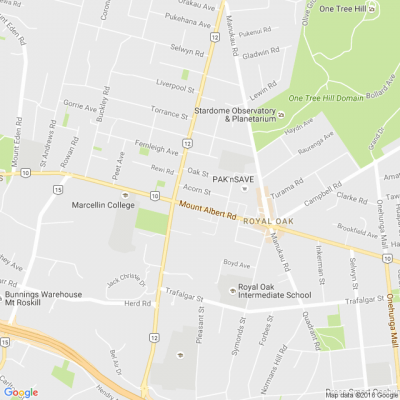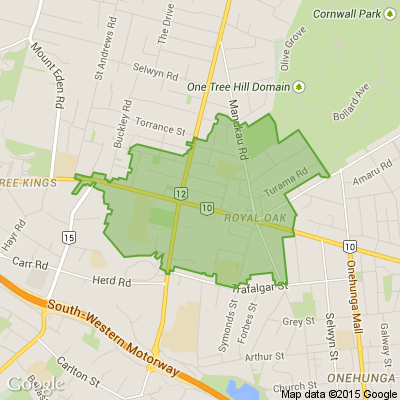Auckland flooding, wild weather: What does a state of emergency mean?
Auckland Mayor Wayne Brown has today declared a state of local emergency as a deluge has hit Tāmaki Makaurau and other parts of the North Island.
Firefighters have responded to 88 calls for help, 22 of which were urgent, across flood-affected Auckland and Northland.
Driving conditions are treacherous and the Northern Motorway is closed between Northcote Rd and Esdmonde Rd in both directions.
“This morning, at my request, the Deputy Mayor and I received an urgent phone briefing from Auckland Emergency Management Civil Defence,” Auckland Mayor Wayne Brown said in a statement.
“After carefully considering the advice of the Duty Controller I have decided to declare a precautionary State of Local Emergency. The decision is based on the lessons we learnt from the Anniversary Auckland floods.
“While I am assured that emergency services are coping with the volume of call outs at the moment, and that they do not require emergency powers, I consider it is necessary to communicate to the public that this is something to take seriously.
“As I am in Sydney on Council business, I have delegated my responsibilities and powers to Desley Simpson, who is now Acting Mayor until I return,” Brown said.
So what does that mean for you?
===========================
For the most part, the state of emergency does not affect daily life.
Schools can open if they are not already and people can go to work as usual.
========================================================
The state of emergency simply means agencies are able to access some powers they usually do not have.
========================================================
It means council staff are able to enter buildings at any time during working hours to assess the safety, evacuate people and prohibit the use of the building if it is deemed unsafe - and police have the power to support them in doing that
======================================================
The state of emergency also means that the Civil Defence Emergency Management Group have powers relating to the provision of the relief of distress including emergency food, clothing and shelter.
========================================================
It allows Fire and Emergency New Zealand to enter any properties and shore up or pull down structures that have been damaged and provide a danger to life or property.
====================================================
‘We recommend you are extra cautious’
Auckland Council is warning properties next to, above or below properties affected by existing landslides may be at increased risk of further landslides.
The council’s head of engineering resilience Ross Roberts said today’s rain may see further damage.
“In many areas, clifftop properties with existing landslides may encounter further damage.
“If your house has a red ‘entry prohibited’ placard, ensure you’re following the requirement to stay out.
“If your house has a yellow ‘restricted access’ placard, follow the restrictions given on the placard and seriously consider avoiding any entry for the duration of the event.
“If your house is next to a property with a placard, or if you see any signs of instability, or if you are concerned about the stability of the land around your house, we recommend you are extra cautious during this likely severe weather event and you may want to consider finding alternative accommodation during heavy rain.”
================================================
www.nzherald.co.nz...
================================================

Selling Investor house
Is anyone looking to buy an investor house in Mangare Bridge. It's a brand new two bedroom, one bathroom townhouse, it is going for $580,000 to $600,000.The house comes with a well referred tenant and is not to be sold to live in but to invest in with a current tenant. She is the first and only tenant that has lived there. It is located near the motorway and bus stops and is in a very safe communal neighborhood managed by Bodycorp. The house is surrounded by beautiful views and trees everywhere and is therefore very cute and cozy. If you are interested to buy the house as an investment please message me. I will send you the pictures.
Have you got New Zealand's best shed? Show us and win!
Once again, Resene and NZ Gardener are on the hunt for New Zealand’s best shed! Send in the photos and the stories behind your man caves, she sheds, clever upcycled spaces, potty potting sheds and colourful chicken coops. The Resene Shed of the Year 2026 winner receives $1000 Resene ColorShop voucher, a $908 large Vegepod Starter Pack and a one-year subscription to NZ Gardener. To enter, tell us in writing (no more than 500 words) why your garden shed is New Zealand’s best, and send up to five high-quality photos by email to mailbox@nzgardener.co.nz. Entries close February 23, 2026.

Share your favourite main crop potato recipe and win a copy of our mag!
Love potatoes? We will give away free copies of the May 2026 issue to readers whose potato recipes are used in our magazine. To be in the running, make sure you email your family's favourite way to enjoy potatoes: mailbox@nzgardener.co.nz, by March 1, 2026.








 Loading…
Loading…